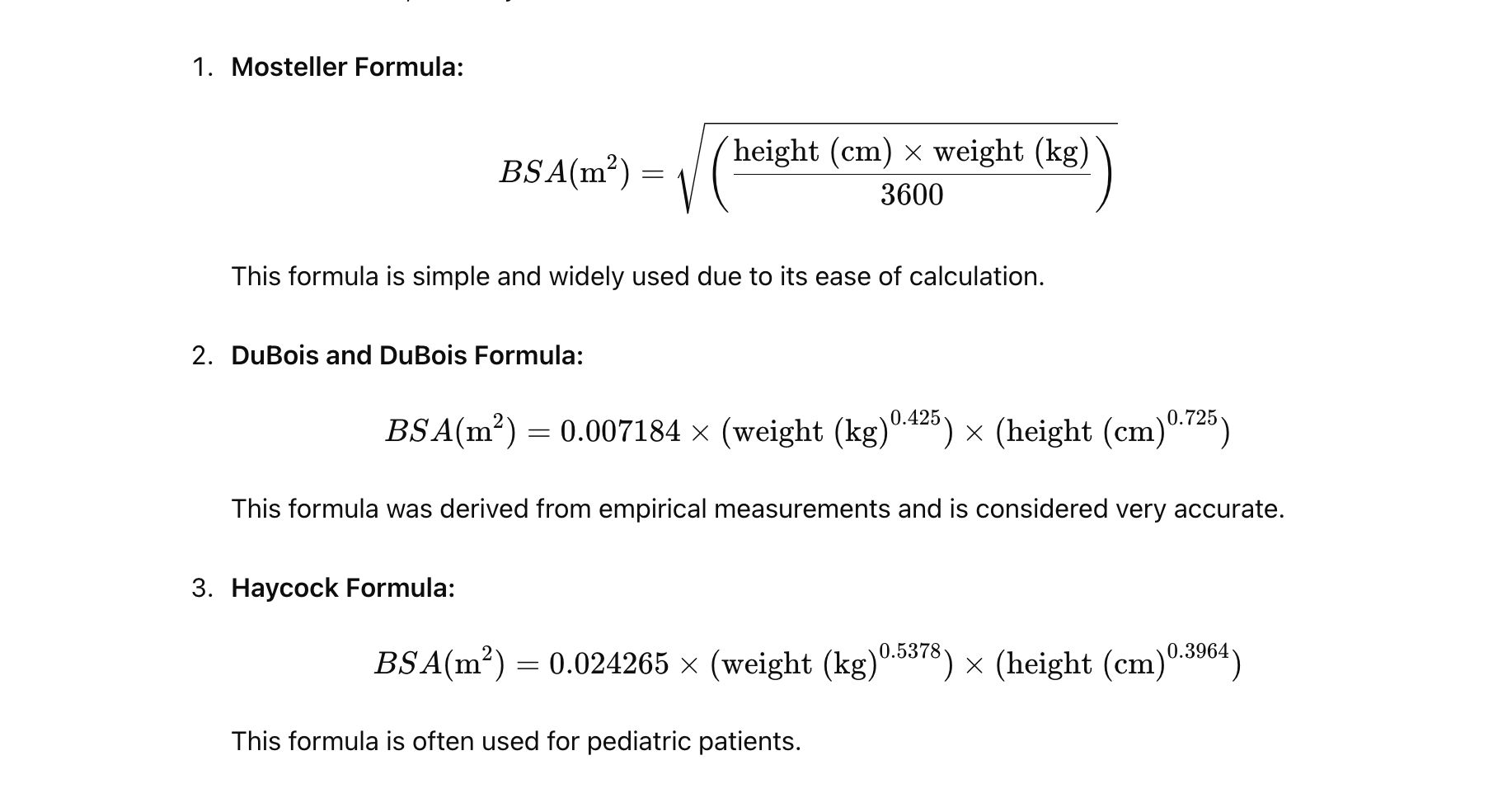BSA Calculator
Body Surface Area (BSA) is a measurement that reflects the total surface area of a person’s body. It’s expressed in square meters (m²) and is used because many physiological processes correlate more closely with BSA than with body weight alone.
Accurate medication dosing, especially in conditions like diabetes, is crucial for effective treatment. Learn how the HbA1c Calculator can help you manage blood glucose levels over time.
Why is BSA Important?
Medication Dosing: Certain medications, especially chemotherapy drugs, are dosed based on BSA to ensure the correct therapeutic effect while minimizing toxicity.
Physiological Assessments: BSA is used to calculate cardiac index (cardiac output normalized to BSA) and evaluate metabolic rates.
Nutritional Needs: BSA can be used to estimate caloric and dietary requirements.
How is BSA Calculated?
There are several formulas for calculating BSA, with the most commonly used being the Mosteller, DuBois and DuBois, and Haycock formulas. Here’s a brief look at each:
